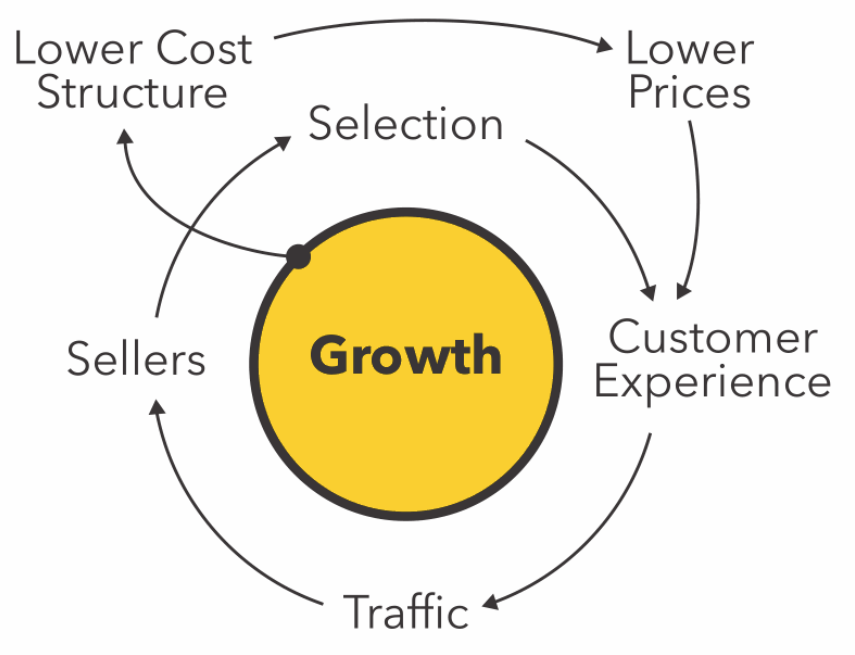What Retailers Can Learn from Amazon's CX
From its origins, Amazon’s business model has focused on growth. Jeff Bezos' strategy to achieve huge rates of growth is based on a good selection of sellers and giving users the best customer experience possible (which in turn, brings more sellers and users).
Those are the basics of the so-called Amazon’s Flywheel:

As we witness their success, we continue to see that there are many lessons that retailers and companies from other sectors –such as banking or telecom– can learn from Amazon’s customer experience.
Let's take a quick look at some of them.
Each customer is different
Customers are not all equal and their differences should be taken into consideration from the get-go.
For example, Amazon knows they have to cater to various types of shoppers. There are customers who know what they need to buy and they want to do it in the simplest and fastest way possible –Amazon provides them with the one-click purchase option. Others may prefer to take their time or consider different options –well, they can just save their products in the shopping cart and purchase them later.
Difference between customers shows in several aspects of the shopping experience and for each, Amazon has an option that provides a sense of personalization. What are some ways that other industries can make sure they're capitalizing on this aspect? Well, in banks it is having products for different people, some prefer cards, others want to use Apple Pay. It's important to rely on research, focus groups, and analytics to get to know the customers and their needs.
Constant improvements
Amazon is constantly evolving, making small tweaks to their interface, changing their font, design, adding a new button… All of these changes aim to make the buying process easier for their customers. At Amazon, they monitor each experiment, conduct A/B testing and observe the behavior of their customers when they're shopping and make adjustments to suit their needs (and to improve their sales, of course).Their interface exists in a separate piece of code than the rest of the platform, which allows them to make changes fast without messing with the more sensible parts of the business.
What can other industries learn from this? They need to stay on top of their product and processes that affect the user experience. And, decisions must be made after analyzing the right data.
Fast and Reliable Delivery
Fast delivery is key when we talk about online shopping and it is one of the parts of customer experience that is more open to innovation. Customers want to have their purchases with them as soon as possible, hence why same-day delivery is buzzing so much these days.
What can others take away from Amazon here? Well, Amazon has partnerships with different postal and courier services in all the countries where they operate, and they make sure that their providers function in the best way possible. Although Amazon is not in control of this important part of the business yet, they have already tested their own shipping and delivery service in several cities.
As for alternatives to delivering purchases to their customers, Amazon is already experimenting with the installation of lockers in train stations and malls. And, even bolder, they are trying In-Home Delivery that would work with a special kit that includes a smart lock and a security camera.
Returns and refunds
Last but not least, Amazon's policy on refunds and returns is one of the aspects that customers value the most. If you don’t like what you bought, you can just return it to Amazon –without giving any explanations.
We're observing better and improved return policies from other retailers and businesses, but there are still some industries that need to jump on this. Customers want to trust that they can cancel purchases and reservations without losing their money. It is a great way to establish trust with them and it helps take the edge and insecurity some may have about purchasing certain items online instead of in-store.
To wrap up, there are many things that other companies can learn from Amazon's success and practices. Amazon is probably one of the most customer-focused companies in the world right now and a lot of their disruption of the industry is related to the attention they dedicate to the customer experience.
All of the examples above are part of a way of thinking, a business culture that other retailers could look into. Is it a recipe for growth and success? Apparently.